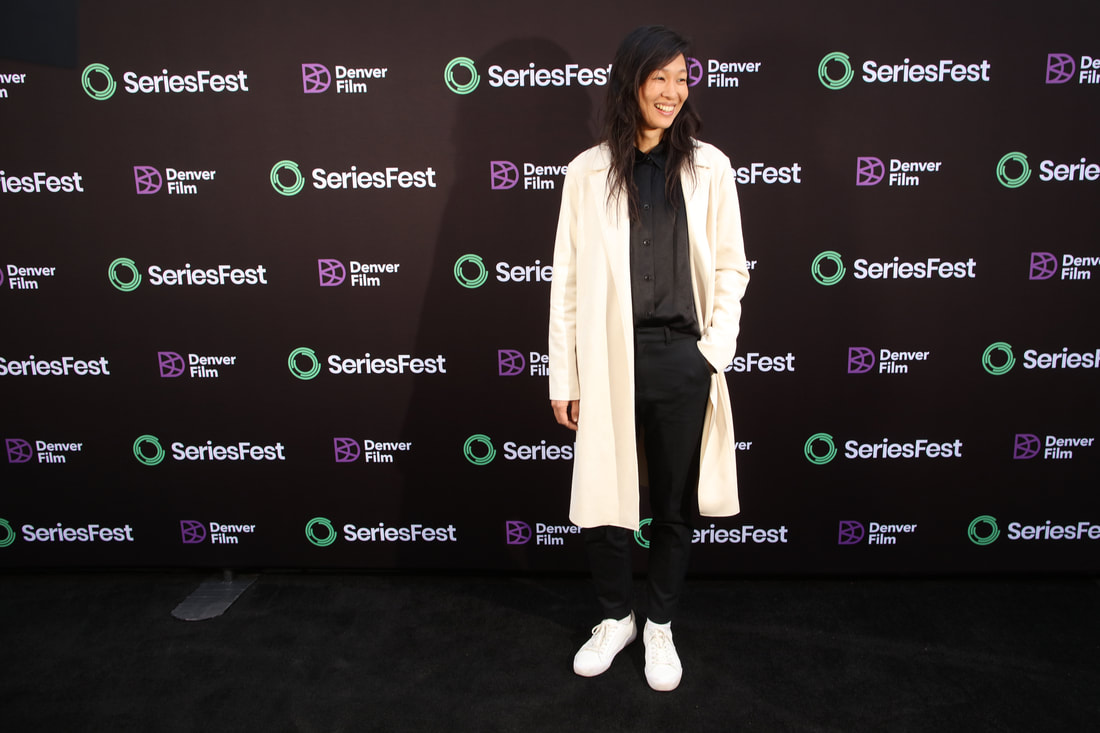 Actor Sue Ann Pien at SeriesFest. Photo by Bear Gutierrez for SeriesFest. Actor Sue Ann Pien at SeriesFest. Photo by Bear Gutierrez for SeriesFest. During SeriesFest Season 9, I got to sit down with Sue Ann Pien, a wonderful actor who is open about her Autism. In the world of differently abled, voices matter. Pien is working hard to ensure her voice is heard and to destigmatize Autism. Many of those who are neurodivergent are incredibly talented and overlooked because they do not fit in with societal norms. Pien is only one of a handful of actors who are out and open about their Autism and the struggles of being differently abled in Hollywood. I connected with Pien and her openness, her passion for equality, and her drive for everyone to be treated right. After all, we are people, we are human, and while we may express ourselves differently, it does not make us less. Shae: What was your main inspiration behind being on this panel? Sue: That's a great question. It's been quite a journey. You know, being in that as we see it and talking about autism, bringing all of these enlightened conversations to the forefront of entertainment. Right. That's incredible. And so, one of the main things, like I said, I am also creating, I'm directing a short film and I want to use all the talent. Especially since I've met so many people that were incredible on the set. I want to put them to use again. We have two producers, one of them is Darren Dean, he's a producer on Tangerine, an award-winning show. Also, The Florida Project and, Willem Dafoe was nominated for an Oscar in that. So, I have some big heavy guns. You know, Suzanne Ellis is the president of Beacon pictures and worked with Kevin Costner, Mila Kunis, and these guys are literally like I was talking about on stage, they want to make sure that people we have neurodivergent creators behind the scenes to really employ a vast spectrum of talent. I want to be a voice for that. I want to get that stuff out in the world. Like Bella, my lead actress who wrote the short film, she has two siblings and they’re both on the spectrum, they're very different. One, Alex, is an animator, an incredible animator, but he speaks like he’s in a cartoon, so you wouldn't even know when you met him. You're like, “Oh, that's just some autistic kid.” And then you watch how he draws, and you're blown away by his talent. Like, I don't know if I could draw. But the social stigma around him, and he's not going to have a normal conversation with you. But I speak that language, so it's fine. Shae: That is amazing. Thank you so much for being that voice. I have cousins on the spectrum. One of them is also a talented artist, and people have this stigma of people on the spectrum of looking down at them for acting different. To be a voice to that to say, “there's nothing wrong. I'm just a person. Treat me as such”, is absolutely wonderful. Sue: Yeah, it's weird, right? It's so weird. I mean, it's almost like you're in this group of people that you know, and throughout history, we've seen this right? You see, like, with the racism, with all of this homophobia, with xenophobia, so it's just another element of that except it applies to people who are differently abled. Shae: It does apply to differently abled, for sure. To have that voice, to speak to multiple people across… because that's the thing about being differently abled, right? Like we aren't just narrowed down to one race or gender or anything, we're across an entire spectrum of humanity. How do you feel about able-bodied actors playing the roles for differently abled people? Sue: That is definitely an unpopular thing to do. Here's the thing that we're trying to do, we're trying to give people who have not had the opportunity to even get seen, to go out there and earn a living doing what they love. Like, I want to see these actors step out of the way, and let the Autistic person get the Autistic role or the person who is actually Black get the Black role. Just like… give people an opportunity. Shae: When I ask people that question, it is different when you're on the other side of it, because you're like, on one hand, yes, it's getting us visibility. But on the other hand, it's taking away opportunities from our differently abled actors. Sue: We just talked about this; my agent was asking, “When are we going to be competitive?” You know, like an able-bodied regular person? I don't know if you know, they're getting like 20 Auditions a month, right? So, they're, ready to go, people know them, right? They have the connections, the casting directors have seen them, their agents are pushing them. And then you have somebody in a wheelchair who gets one audition a year. How is that person going to go anywhere near a common additive role? Right, you have to you have to shut the pipeline down and be like, open up the doors, let them all come in. This interview has been lightly edited and condensed for clarity.
0 Comments
Leave a Reply. |
Archives
March 2025
|
|
© 2012-2025, Nerds That Geek LLC.
All Rights Reserved. |
uWeb Hosting by FatCow

 RSS Feed
RSS Feed